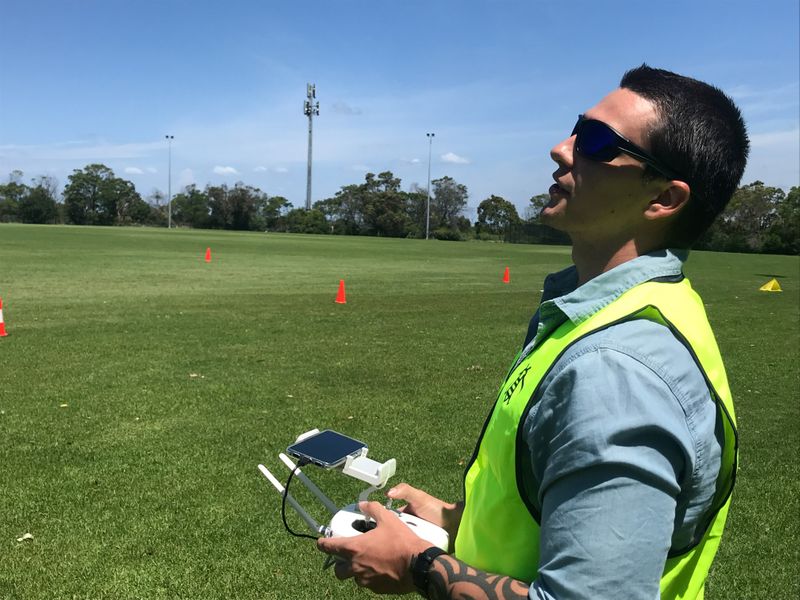By Jill Gralow
SYDNEY (Reuters) - Instructors gaze watchfully from the shade of a tree as men in neon-green vests manipulate hand-held controllers clipped to mobile telephones as they direct drones flying over a vast Sydney field.
The classes are run by Droneit Group, an Australian firm that accredits learners to fly the unmanned aerial vehicles, but which is now reshaping its strategies after Alphabet (NASDAQ:GOOGL) Inc's web search giant Google threatened to leave the market.
"(I found Droneit via) Google, Google search," said one of its students, Terry Worsfold, who is pursuing his remote pilot's licence.
"Yeah, just organic results, no ads. I looked at a couple of their competitors, then I reached out to them, and it looked like they had the best deal."
Google's threat to leave a market in which industry data shows it has a share of 94% was prompted by Canberra's push to adopt the world's first laws on content payments.
That prospect has driven some Australian businesses to switch services to Microsoft (NASDAQ:MSFT).
"We'll need to pivot our marketing strategy and our website strategy," said Viktor Nikolov, Droneit's digital campaign manager. "We'd also move a lot of our focus onto social media."
Last month Google said it would withdraw key services if it and Facebook Inc (NASDAQ:FB) were forced to pay media firms for the right to use their content, as the measure envisages.
Both firms have lobbied Prime Minister Scott Morrison in recent days, but expectations of widespread disruption are spurring some businesses to seek alternatives.
The laws would require Google and Facebook to strike binding pacts with Australian media whose content drives traffic to their platforms. If they cannot, the government will appoint an arbitrator to do it for them.
Until recently, most countries have stood by as advertisers redirect spending to the world's biggest social media website and search engine, starving newsrooms of their main revenue source and bringing widespread shutdowns and job losses.
But regulators are starting to test their power to rein in the two huge firms, which together take more than four-fifths of Australian online advertising spending, Treasurer Josh Frydenberg has said.
Google has argued that the legislation, now the subject of a parliamentary inquiry but expected to be passed into law soon, is unworkable. In October it said it planned to pay $1 billion to publishers globally for their news over the next three years.
Google has said the regulation ignores "billions of clicks" that it sends to Australian news publishers each year.
It is reviving plans to launch its own news website in Australia within weeks, perhaps as early as this month, in a high-profile campaign against the plan.
Preparing for another training flight, Worsfold said it was unlikely Google would deliver on its threat, however.

"I think it's a bluff," he added. "I don't think anything's going to happen. I think it's all smoke and mirrors."